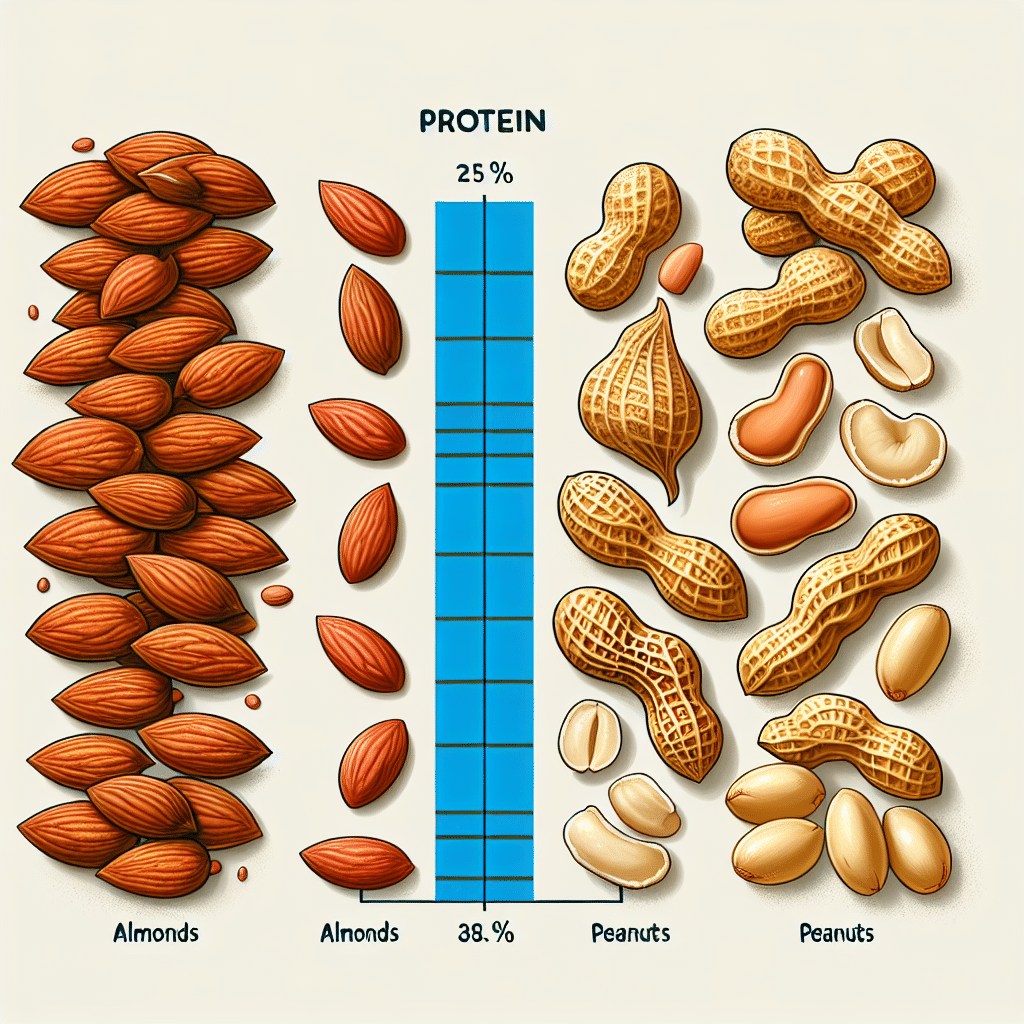Here’s a comparison between almonds and peanuts based on nutrition, health benefits, and common uses:

1. Nutritional Value
– Almonds: Higher in vitamin E, magnesium, calcium, and antioxidants. A 1 oz (28g) serving contains about 164 calories, 6g of protein, 14g of fat, and 6g of carbs.
– Peanuts: Slightly higher in protein and folate. A 1 oz (28g) serving contains about 161 calories, 7g of protein, 14g of fat, and 4.6g of carbs.
2. Health Benefits
– Almonds: Promote heart health, improve skin due to their high vitamin E content, and help maintain bone health due to calcium and magnesium.
– Peanuts: Rich in heart-healthy monounsaturated fats and may support brain health due to their folate and resveratrol content.
3. Common Uses
– Almonds: Eaten raw, roasted, or as almond butter. Also used in almond milk, flour, and snacks.
– Peanuts: Eaten raw, roasted, or as peanut butter. Common in sauces, snacks, and desserts.
4. Allergies
– Peanuts: More commonly associated with allergies, and peanut allergies can be severe.
– Almonds: Less common as an allergen, though some people are sensitive to tree nuts.
5. Environmental Impact
– Almonds: Require more water to cultivate, particularly an issue in areas like California where they are commonly grown.
– Peanuts: Less water-intensive compared to almonds, making them a more sustainable choice in certain regions.
Overall, both nuts are healthy choices, but your selection may depend on personal nutritional goals, allergies, and environmental concerns.





